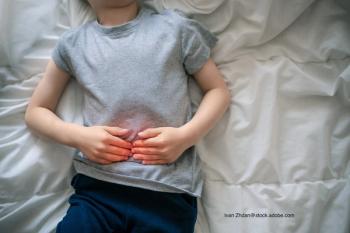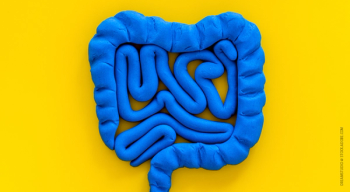
A 6 minute test is frequently used to test a child's ability to tolerate exercise, but a study investigates if a 3 minute test could work just as well.

A 6 minute test is frequently used to test a child's ability to tolerate exercise, but a study investigates if a 3 minute test could work just as well.

US Food and Drug Administration (FDA) has approved an updated label for liraglutide for its use in adolescents aged 12 to 17 years.

When faced with a fussy infant, it's common to think acid reflux is the cause, but a recent report indicates that it may be time to think of other causes.

Screening children for their body mass index (BMI) and sending “report cards” to parents has been suggested as an intervention to combat childhood obesity. Are they really as effective as some think?

As the obesity epidemic has intensified, the number of public health campaigns have also increased. A report looks at the potential unintended consequences of these campaigns.

Native Americans are disproportionately impacted by early childhood obesity. Can home visits help turn the tide?

Many interventions have been thought of to tackle the childhood obesity epidemic. Could starting the intervention before a child is born make progress?

Smartphone applications addressing weight reduction have increased along with smartphone app use among pediatric patients. What's the best way to choose one?

When diagnosing inflammatory bowel disease (IBD), pediatricians may want to avoid using endoscopy. Here’s a look at how 4 alternate strategies work.

The factors tied to cardiometabolic risk factors and adiposity are myriad. A report examines whether following guidelines can help reduce the risks.

Overweight and obesity issues have been suspected of increasing cardiometabolic risk in children. A new study investigates.

It’s been hypothesized that obesity can lead to worse outcomes in critical illness and an investigation provides some answers.

A report examines whether children and adolescents who have severe obesity have differences in certain psychological and behavioral attributes than their peers.

Breastfeeding has many benefits and a new report indicates that it could helpful in reducing body mass index (BMI) in newborns at greater genetic risk for overweight and obesity.

Algorithms and evidence-based guidelines have become increasingly used for treating gastroenteritis, but can they lead to better outcomes?

Many young athletes are interested in resistance training, and a policy statement update from the American Academy of Pediatrics (AAP) addresses how they can safely participate.

Although the majority of patients with cystic fibrosis (CF) will be managed by specialty care, the primary care provider is often the first line of contact for many routine concerns. When encountering a patient with CF in the primary setting, there are extrapulmonary symptoms that must be considered in patients, which includes gastrointestinal symptoms.

Significant improvements in cystic fibrosis (CF) care have focused primarily on the pulmonary system, but addressing the gastrointestinal complications of CF presents a major opportunity for improvement in disease management.

Of 973 preschool-aged children with acute gastroenteritis who visited 1 of 10 geographically diverse pediatric emergency departments (EDs), those who received a 5-day course of Lactobacillus rhamnosus GG, a commonly recommended and used probiotic, did not have better outcomes than those who received placebo, a prospective, randomized trial found.

Here is helpful advice gleaned from my experiences with C diff, diarrhea, colic, reflux, and other things gastroenterological.

Functional constipation in children is no news to pediatricians. What may be news is that recommendations on how to diagnose and treat this common malady keep evolving as more evidence becomes available.

Social media may play a role in helping children overcome obesity. Health care professionals are encouraged to use new recommendations as a tool for promoting healthy behavioral change.

Type 2 diabetes, once considered a disease of “adult onset,” is highly resistant to treatment in overweight American youth-a group succumbing to the disorder at an alarming rate.

Hypercholesterolemia, atherosclerosis, and coronary artery disease are ever-growing problems in our society. While these “adult” medical issues rarely concerned pediatricians in the past, it is now well recognized that these troublesome processes begin in childhood.

It is midwinter. I’m tired of the cold weather and the white stuff falling from the sky. Lately, I’ve been thinking about another type of white stuff that often gets a bad rap-white rice and white foods in general. Rice cereal has a special significance for pediatric health care providers because it is typically the first solid food that is recommended for the 4 to 6 month old. Recently, I read about a pediatrician who is encouraging the use of brown rice cereal or a homemade brown rice mash or vegetable puree, instead of white rice cereal.